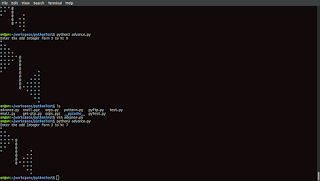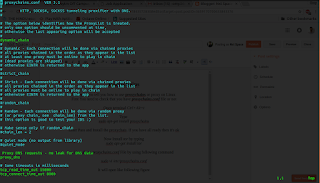Initially I was confused, I tried so many ways but I still get error.
1- sudo apt-get update
and I get-
Hit:1 http://in.archive.ubuntu.com/ubuntu bionic InRelease
Hit:2 http://archive.ubuntu.com/ubuntu bionic InRelease
Hit:3 http://in.archive.ubuntu.com/ubuntu bionic-updates InRelease
Hit:4 http://in.archive.ubuntu.com/ubuntu bionic-backports InRelease
Hit:5 http://in.archive.ubuntu.com/ubuntu bionic-proposed InRelease
Get:6 http://security.ubuntu.com/ubuntu bionic-security InRelease [88.7 kB]
Get:6 http://security.ubuntu.com/ubuntu bionic-security InRelease [88.7 kB]
Get:6 http://security.ubuntu.com/ubuntu bionic-security InRelease [88.7 kB]
Get:6 http://security.ubuntu.com/ubuntu bionic-security InRelease [88.7 kB]
Get:6 http://security.ubuntu.com/ubuntu bionic-security InRelease [88.7 kB]
Fetched 19.3 kB in 3min 42s (87 B/s)
Reading package lists... Done
Hit:2 http://archive.ubuntu.com/ubuntu bionic InRelease
Hit:3 http://in.archive.ubuntu.com/ubuntu bionic-updates InRelease
Hit:4 http://in.archive.ubuntu.com/ubuntu bionic-backports InRelease
Hit:5 http://in.archive.ubuntu.com/ubuntu bionic-proposed InRelease
Get:6 http://security.ubuntu.com/ubuntu bionic-security InRelease [88.7 kB]
Get:6 http://security.ubuntu.com/ubuntu bionic-security InRelease [88.7 kB]
Get:6 http://security.ubuntu.com/ubuntu bionic-security InRelease [88.7 kB]
Get:6 http://security.ubuntu.com/ubuntu bionic-security InRelease [88.7 kB]
Get:6 http://security.ubuntu.com/ubuntu bionic-security InRelease [88.7 kB]
Fetched 19.3 kB in 3min 42s (87 B/s)
Reading package lists... Done
2- sudo apt-get upgrade
and I get This Error-
update-initramfs: Generating /boot/initrd.img-4.18.0-25-generic
I: The initramfs will attempt to resume from /dev/sda2
I: (UUID=7617de5b-de18-429b-839e-adb13a5646cd)
I: Set the RESUME variable to override this.
Errors were encountered while processing:
libnet-ssleay-perl
E: Sub-process /usr/bin/dpkg returned an error code (1)
wget http://prdownloads.sourceforge.net/webadmin/webmin_1.510-2_all.deb
this will download the package.
sudo apt-get install perl libnet-ssleay-perl openssl libauthen-pam-perl libpam-runtime libio-pty-perl
but still I was getting Error anfter that I tried
sudo apt-get install apt-show-versions
Then I get below error
Reading package lists... Done
Building dependency tree
Reading state information... Done
The following NEW packages will be installed:
apt-show-versions
0 upgraded, 1 newly installed, 0 to remove and 3 not upgraded.
1 not fully installed or removed.
Need to get 28.6 kB/312 kB of archives.
After this operation, 93.2 kB of additional disk space will be used.
Get:1 http://in.archive.ubuntu.com/ubuntu bionic/universe amd64 apt-show-versions all 0.22.7ubuntu1 [28.6 kB]
Fetched 28.6 kB in 0s (62.8 kB/s)
Selecting previously unselected package apt-show-versions.
(Reading database ... 161378 files and directories currently installed.)
Preparing to unpack .../apt-show-versions_0.22.7ubuntu1_all.deb ...
Unpacking apt-show-versions (0.22.7ubuntu1) ...
Setting up apt-show-versions (0.22.7ubuntu1) ...
** initializing cache. This may take a while **
dpkg: error processing package libnet-ssleay-perl (--configure):
package is in a very bad inconsistent state; you should
reinstall it before attempting configuration
Processing triggers for man-db (2.8.3-2ubuntu0.1) ...
Errors were encountered while processing:
libnet-ssleay-perl
E: Sub-process /usr/bin/dpkg returned an error code (1)
sudo apt-get -f install
After this try I get again below Error
Reading package lists... Done
Building dependency tree
Reading state information... Done
0 upgraded, 0 newly installed, 0 to remove and 3 not upgraded.
1 not fully installed or removed.
Need to get 0 B/284 kB of archives.
After this operation, 0 B of additional disk space will be used.
dpkg: error processing package libnet-ssleay-perl (--configure):
package is in a very bad inconsistent state; you should
reinstall it before attempting configuration
Errors were encountered while processing:
libnet-ssleay-perl
E: Sub-process /usr/bin/dpkg returned an error code (1)
sudo apt-get autoremove libnet-ssleay-perl This will remove libnet-ssleay-perl but still I get below error- Reading package lists... Done Building dependency tree Reading state information... Done libapt-pkg-perl is already the newest version (0.1.33build1). 0 upgraded, 0 newly installed, 0 to remove and 3 not upgraded. 1 not fully installed or removed. Need to get 0 B/284 kB of archives. After this operation, 0 B of additional disk space will be used. Do you want to continue? [Y/n] y dpkg: error processing package libnet-ssleay-perl (--configure): package is in a very bad inconsistent state; you should reinstall it before attempting configuration Errors were encountered while processing: libnet-ssleay-perl E: Sub-process /usr/bin/dpkg returned an error code (1)
sudo apt-get install --reinstall libnet-ssleay-perl
And this solved my problem. after this I
sudo apt-get update
and
sudo apt-get upgrade
and I found problem has been solved
sudo apt-get upgrade
Reading package lists... Done
Building dependency tree
Reading state information... Done
Calculating upgrade... Done
The following packages have been kept back:
linux-generic-hwe-18.04 linux-headers-generic-hwe-18.04
linux-image-generic-hwe-18.04
0 upgraded, 0 newly installed, 0 to remove and 3 not upgraded.







